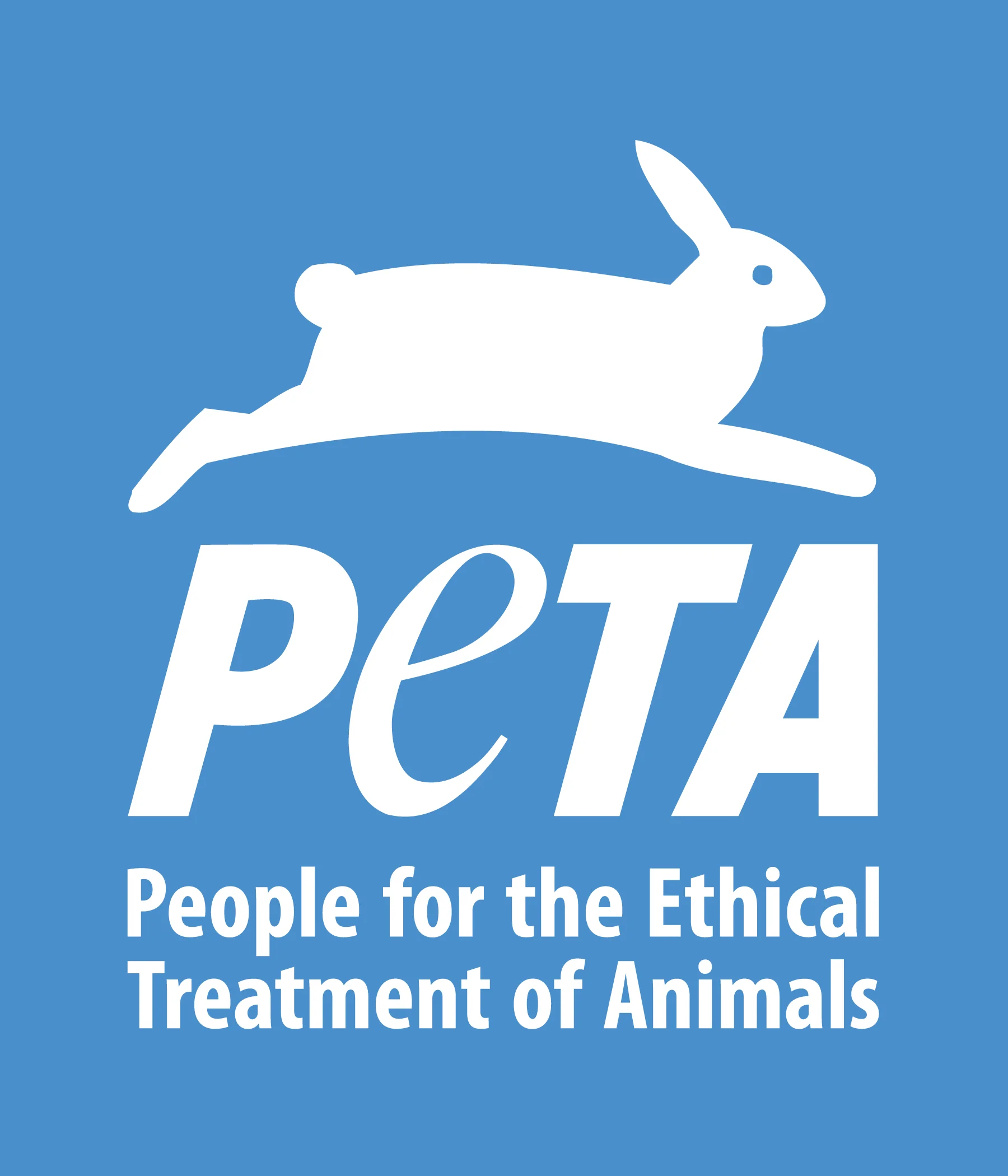Q&A with...
Laura Shields, Stephanie Downs, Lisa Feria, and Claire Bergkamp
Laura Shields
Corporate Liaison at PETA
Lisa Feria
CEO of Stray Dog Capital
Stephanie Downs
Corporate Social Responsibility Consultant at PETA
Claire Bergkamp
Head of Sustainability and Ethical Trade at Stella McCartney
BDC: PETA has co-sponsored the Animal-Free Wool Prize for BDC 2018. Why is PETA interested in the development of wool alternatives, and why has it turned to university students working at the intersection of science, art, and design?
While most people know PETA for our attention-grabbing protests and celebrity ads, we also work behind the scenes to facilitate the development of innovative animal-free textiles that will supersede animal use, and this sponsorship is part of that effort. The future of fashion lies in sustainable vegan materials that are animal and eco-friendly, and PETA wants both to inspire and to equip young designers to develop such materials. For animals, there's no time to waste. We have released seven exposés of 44 sheep farms and shearing sheds on three continents, revealing horrendous abuse at every turn. We documented that workers violently punched sheep, beat and jabbed them in the head with sharp metal clippers, kicked them, poked their eyes, left them bleeding after fast and rough shearing, and slaughtered fully conscious animals by driving knives into their necks. Wool is not only cruelly produced, but also unsustainable. Data from the Higg Materials Sustainability Index found that, because of the greenhouse-gas emissions associated with its production, wool has a greater impact on climate change than most synthetic options.
BDC: Stella McCartney has been experimenting with a number garments made from biotechnologically derived materials. For example, its dress sown from genetically engineered spider silk has been displayed at MoMA. Can you explain McCartney's interest in biotech?
Stella McCartney, a sustainable-fashion pioneer, has always had an interest in propelling the fashion industry forward. All her collections are free of leather, fur, and exotic skins, and roughly half of each one is made by using sustainable materials. Now, she's stepping up her eco message even more—and hoping to encourage others in the fashion industry to follow suit—by seeking out viable options to replace silk, wool, and other materials derived from animals. Sustainable fashion is vegan fashion, and biotechnology will play a big part in that.
BDC: Stray Dog Capital has been investing in animal-free products since 2016. What is the market potential for alternatives to wool?
The demand for stylish, sustainable fashion has always existed—new technology is just allowing designers to do a better job of meeting it. According to a report by the business consulting firm Grand View Research, Inc., which estimates that the market for vegan leather will reach $85 billion by 2025, "As textile technology is evolving, consumers are preferring vegan fashion." There's every reason to believe that this preference will carry over to vegan wool and other animal-free materials as well. Shifting away from an animal-based economy is the most ethical choice—and a smart business decision.
BDC: PETA draws strict lines in its ethical stance on the treatment of animals. What is biotech's role in creating a more ethical future?
More and more consumers around the world are becoming aware that animal-derived materials pollute the planet, endanger workers' health (they're exposed to a stew of toxic chemicals that are needed to keep animal skins from decomposing), and cause animals to suffer. Customers are demanding products that are sustainable, recyclable or biodegradable, and don't harm animals. In order to meet the growing demand for ethical fashion, we must explore every option, including biotechnology. PETA hopes to serve as a bridge between biomaterials and other innovative options—such as pineapple leaf leather, soy-based "vegetable cashmere," wool made from seaweed and hemp, and more—and the forward-thinking designers and brands that will use them in their collections.
BDC: Stella McCartney has been working with innovative technologies, most recently by making products made from ocean plastic. How does the partnership between scientists, artists, designers drive fashion?
Today's consumers, especially millennials and those from Generation Z, are concerned about environmental and animal-welfare issues, and they recognize that fashion can be part of the solution. For example, Stella has said that she was inspired to do something by the dire prediction that by 2050, plastic bottles could outnumber sea life in our oceans. Turning something destructive—plastic trash—into something functional and beautiful is a win-win situation: While scientists look for ways to replace the use of plastic altogether, recycling it into yarn helps to raise awareness of the problem and clean up the oceans at the same time.
BDC: Stray Dog Capital has a unique investment strategy that marries ethics with business interests. What are you looking for in student projects?
From students to startups, Stray Dog Capital is always looking for innovative projects that will help our society embrace alternatives to animal exploitation and move away from an animal-based economy.
BDC: This is a question for everyone. What do you hope students participating in BDC will take with them into their careers?
We want to empower students and help them see that they can be part of the solution to today's global problems. Raising and killing animals for their flesh and skins is cruel, wastes resources, and causes so much destruction—it's completely unsustainable. Animal agriculture is more harmful to the planet than any other industry. But for every cruel or environmentally destructive practice, there's always a better option—it's just a matter of being creative and inventive in order to discover it. We hope that students participating in this challenge—tomorrow's designers—will lead the way on this issue by creating and using viable vegan materials that don't harm us, the Earth, or animals.
More about Laura: Laura Shields is a Corporate Liaison in PETA’s Corporate Affairs Department. She attempts to work collaboratively behind-the-scenes with major companies to find common ground and seek animal welfare improvements in practices and policies. She negotiates with companies to move away from the cruel animal-skin industries and to instead source and/or develop innovative, vegan materials. Laura follows the field of biofabrication closely and serves as a bridge between innovative materials and the designers and brands that may integrate them into their collections. She earned a Ph.D. in American Studies from Saint Louis University.
More about Stephanie: Stephanie Downs is a serial entrepreneur but an activist at heart. In 1999, she founded MarKomm, a marketing firm that she oversaw for 15 years until selling it in 2014. The success of her agency enabled her to step away from the day-to-day operations to put her knowledge to good use. In 2007, Downs began consulting for PETA on corporate negotiations with companies such as Tesla, Lowe's, Bebe, Bell & Evans, Duane Reade, Porsche, Ralph Lauren, and many more. In 2009, Downs co-founded FiXiT, a non-profit focused on using creative solutions to bring an end to pet overpopulation. She has now joined forces with partners in India to found Good Dot, a plant-based meat company working to develop meat-like products that can be distributed anywhere at an affordable price. She has been awarded the 40 Under 40 Award in two US states; received the Dewey DoGooder Award from SxSW; and has been a TEDx speaker.
More about Claire: Claire Bergkamp joined Stella McCartney in 2012 and is the Head of Sustainability. During her tenure at Stella McCartney, Claire has helped establish the brand's leadership and reputation in sustainability. She has developed its robust environmental and social improvement strategy and worked across the brand and its supply chain internationally to implement it. Claire has focused particularly on sustainable raw material development and procurement, as well as driving alternative materials and innovation. As such, she works closely with innovators, start-ups, and universities to find new sustainable business models and solutions. A key element of her sustainability approach includes supplier engagement and the ongoing improvement in social welfare across the supply chain. Within this context, she also oversees Stella McCartney's ethical trade and community outreach programs.
More about Lisa: Lisa Feria is the CEO of Stray Dog Capital, a venture capital firm that invests in early-stage, mission-driven companies that aim to take animals out of the supply chain with innovative products and services. Prior to Stray Dog Capital, Lisa spent over 15 years in General Management, Operations, and Engineering at Blue Chip companies like General Mills and Procter & Gamble. She has a BS in Chemical Engineering and an MBA from the University of Chicago, Booth School of Business. Lisa spent over 14 years focused on food operation, consumer packaged goods and led the marketing, P&L management and strategy for billion-dollar brands.
People for the Ethical Treatment of Animals (PETA) is the largest animal rights organization in the world, with more than 6.5 million members and supporters.
The Stella McCartney brand shows its commitment to sustainability through various ways, from pioneering new alternative materials to leather and fur, to pushing towards circularity within all of their designs.
Stray Dog Capital is a mission-driven Venture Capital firm that drives alternatives to the use of animals in the supply chain through investments, expertise and support
Banner image: National Institute of Allergy and Infectious Diseases







